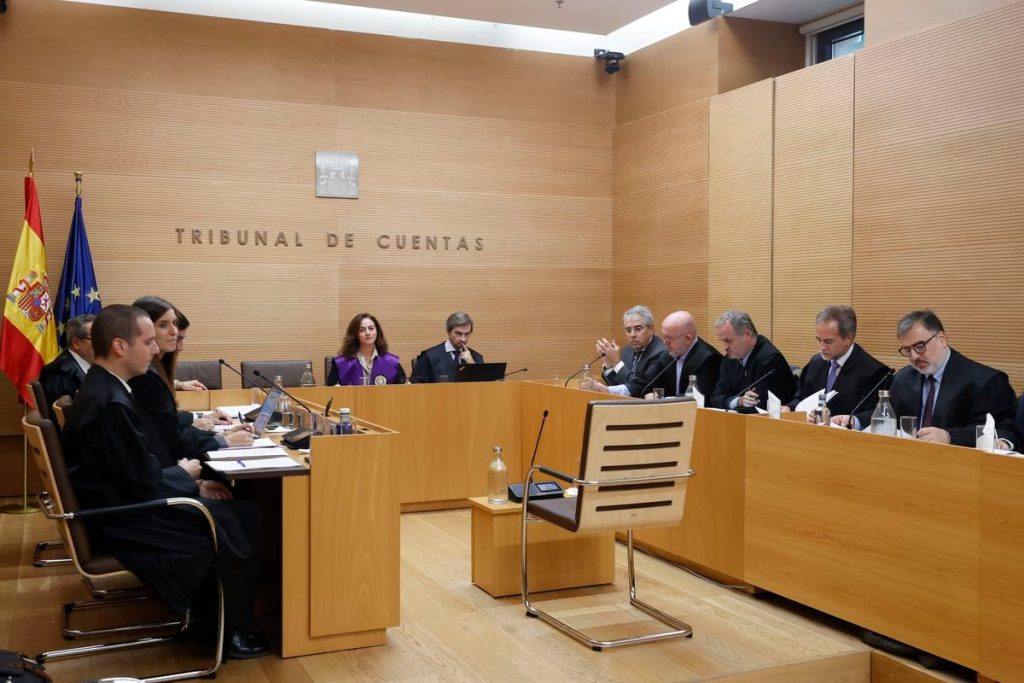The Tribunal de Cuentas instructor who must issue judgment on the alleged misappropriation of public funds in the Catalan independence process, Elena Hernáez, has opened the conclusion phase of this proceeding. Hernáez has given ten days to the Prosecutor’s Office and Sociedad Civil Catalana (SCC), as the plaintiff parties, to send their conclusions; then she will give a similar deadline to the defense, and the next step will be to issue the judgment. The decision comes four and a half months after the trial on the alleged financial responsibility of former presidents Carles Puigdemont and Artur Mas, former vice president Oriol Junqueras, and several former Catalan government officials, high-ranking officials, and employees, totaling 35 individuals.
The Tribunal de Cuentas is the highest supervisory body for the accounts and economic management of administrations. Its members are chosen by the Cortes and the sanctions it imposes are always of an economic nature, as its jurisdiction is financial. In the case of the independence process, the Prosecutor’s Office demands that the accused return 3.4 million euros for the diversion of public funds for the organization of the illegal referendum on October 1st and for promoting the independence plan through the Public Diplomacy Council of Catalonia (Diplocat). Sociedad Civil Catalana, acting as the private prosecutor, is seeking a fine of 5.3 million. The State Attorney’s Office withdrew from the proceedings in January 2022.
The Supreme Court already found the offense of misappropriation in its ruling on the independence process in the criminal domain, issued in October 2019, but the determination of the exact amount diverted falls to the Tribunal de Cuentas. In any case, this is one of the cases that will likely be amnestied when the amnesty law agreed upon by the PSOE and ERC and Junts parties in exchange for the support of both independence parties for Pedro Sánchez’s investiture comes into effect.
Sources from the body emphasize the importance of timing: if when the amnesty law comes into effect the judgment has not yet been issued, Hernáez, appointed on the PP’s proposal, may have doubts about its application and may refer the case to the Constitutional Court or the Court of Justice of the European Union (CJEU). However, if the judgment has been issued and challenged at that time, the case would already be in the hands of the Tribunal de Cuentas’ Trial Chamber, composed of two members proposed by the PSOE and one by the PP. Sources at the Tribunal de Cuentas consider it unlikely that the Chamber would have doubts about the application of the amnesty law and therefore would not refer the matter to the Constitutional Court or the European judiciary.
In a ruling issued on Thursday, the councilor Hernáez declared the final conclusion phase open after rejecting the defense’s last appeal on January 10, which requested the suspension of the entire procedure due to the imminent amnesty. Approximately a month from now, Hernáez, appointed by the PP, may have all parties’ written arguments on her desk and issue judgment. It is unlikely that the Trial Chamber will have doubts about the application of the amnesty law and will not refer the matter to the Constitutional Court or European justice.


